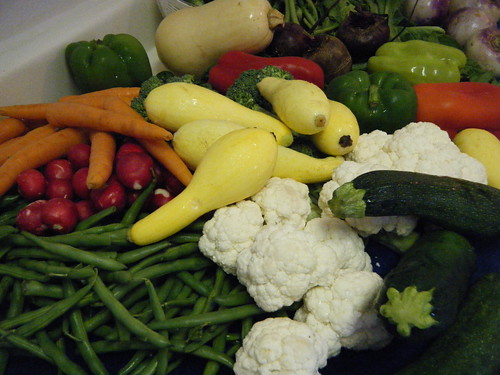Q: Should I peel my bird’s fruit and vegetables?
-Christopher B., Jackson, MS
A: Many rinds or skins taste bitter to humans and it is our habit to remove them. It seems right to prepare our parrot’s foods in much the same way as we prepare our own. However, we are short changing them when we do. Not only do parrots like a lot of bitter tasting things, but some of the best nutrients in produce are found in the parts we typically throw away or avoid eating.
- Kiwi – the fuzzy outer skin of the kiwi fruit contains 3Xs the anti-oxidants as the flesh inside. It also contains fiber and vitamin C.
- Squash – The outermost layer of flesh from all varieties of winter squash and pumpkin have the highest density of nutrients. This layer is typically stripped away during the process of peeling.
- Watermelon rind – The rind of a watermelon and the white/green flesh right next to it contains vitamin C, B6 and components that benefit circulation and the immune system.
- Broccoli leaves– The leaves of the broccoli plant contain surprisingly large amounts of vitamins A and C. When I am buying broccoli, I will often hunt at the bottom of the bin to find fallen or discarded leaves to bring home to the birds. I had an amusing encounter with a keeper of reptiles one day who was also scrounging for the leaves. (We ended up splitting them even though I pointed out that my birds were bigger and could eat her reptiles.)
Remember that many humans have developed their eating habits alongside an overabundance of food. We have become very wasteful with our food because we know there is more available. It is more typical in the animal kingdom, where food is so much harder to come by, that they will utilize all edible parts of a plant and in doing so has gained their benefits.
For parrots, an additional advantage to raw and unpeeled food is that it comes in nature’s personally designed forager. Base your decision to peel or not to peel on your parrot’s size and ability to “break in” to hard outer rinds and not on whether it is something you would eat yourself.
If you have questions about the right diet for your bird, click here: Natural Feeding.
NOTE: When you don’t peel the produce you are serving your bird, it is important that you wash it thoroughly to make sure it is free of pesticides and bacteria. Take extra precautions with foods that are difficult to clean, such as cantaloupe rind or other porous foods.
Patty Jourgensen specializes in avian health, behavior and nutrition and has been working with and caring for rescue birds since 1987.




2 comments
hi there so my butter nut squash can be cleaned and chopped no need to peel ???
this is great information, thanks so much!
Leave a comment